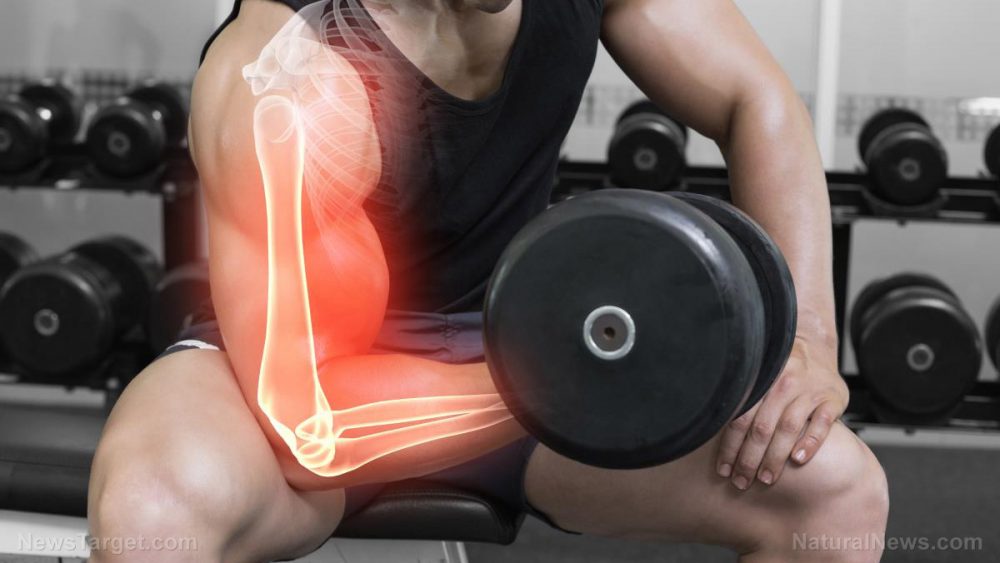
Advertisement
Quercetin is one of the most abundant flavonoids found in food. It is extensively studied due to its various biological activities that are beneficial to human health. These activities include anti-inflammatory, antioxidant, and antihistamine. Recently, studies have emerged demonstrating the ability of quercetin to attenuate indicators of muscle damage. To determine how quercetin can affect smooth muscles, researchers from the University of Alberta in Canada tested quercetin on gallbladder strips. They wanted to determine which system (or systems) mediate the relaxation of gallbladder smooth muscles. Their findings were published in the journal Nutrition Research.
The effects of quercetin on oxidative stress and muscle damage
Numerous studies provide evidence of quercetin’s many health benefits. Some of the most recently discovered ones include anti-carcinogenic and cardioprotective activities, and the ability to increase endurance and oxygen consumption during exercise. This ability to improve physical performance can be attributed to its antioxidant and anti-inflammatory activities, which reduce the exhaustive effects of oxidative stress during intense physical activities.
Cells continue to produce free radicals and reactive oxygen species (ROS) as part of metabolic processes during strenuous exercise. Despite being considered a healthy activity, exercise can also cause an imbalance between ROS and antioxidants in the body – an event known as oxidative stress. Supplementation with potent antioxidants is recommended, especially among athletes to combat the adverse effects of oxidative stress. Dietary polyphenols, especially quercetin, are the most common active ingredients of these supplements.
The anti-inflammatory and anti-oxidative effects of quercetin can be further enhanced by co-ingestion with polyunsaturated fatty acids and other phytochemicals, such as the catechins found in tea. In a study involving cyclists who went through three days of extreme exertion, quercetin supplementation with fish oil and green tea reduced post-exercise measures of inflammation, oxidative stress, and immune disruption. In a similar study with elite cyclists, a combination of antioxidant vitamins, green tea, and quercetin improved their times on a 30-kilometer time trial by 1.7 percent, suggesting that quercetin improves exercise performance.
Another benefit associated with quercetin is its ability to protect the muscles from damage caused by intense exercise. In a randomized, double-blind crossover study, researchers gave 12 participants quercetin twice a day for two weeks while they completed an eccentric exercise program designed to induce severe muscle damage – specifically, myofibrillar disruption and sarcolemmal action potential propagation impairment. The researchers reported that quercetin not only improved their performance, it also attenuated the severity of muscle weakness caused by the eccentric exercise.
Due to these physical benefits, many athletes now rely on quercetin supplementation to relieve muscle inflammation caused by their workouts. They also include foods rich in quercetin to their diets, such as leafy vegetables, broccoli, red onions, peppers, black and green tea, and fruits.
Quercetin can relax gallbladder smooth muscles
In their study, researchers from Canada investigated quercetin and its effect on gallbladder smooth muscle, in particular, if it could relax gallbladder smooth muscles. They have learned previously that quercetin can relax intestinal and vascular smooth muscle. For their experiments, they used an in vitro technique and tested quercetin on gallbladder strips to find out which system or systems mediated the relaxation.
They reported that the addition of quercetin before cholecystokinin or potassium chloride (KCl) produced a significant decrease in the amount of tension in the gallbladder strips. Both cholecystokinin and KCl can induce muscle contraction. When the researchers added protein kinase C (PKC) inhibitors bisindolymaleimide IV and chelerythrine Cl? simultaneously, they observed a significant reduction in the quercetin-induced relaxation.
They also used protein kinase A (PKA) inhibitor 14-22 amide, myristolated to determine if PKA mediates quercetin-induced relaxation. They found that it significantly decreased the amount of quercetin-induced relaxation, suggesting that PKA is part of the mechanism behind quercetin’s muscle-relaxing effect. Treatment with 2-APB and l-NG-methyl-l-arginine acetate salt – a nitric oxide synthase inhibitor – also significantly reduced the amount of quercetin-induced relaxation. On the other hand, KT5823, a PKC inhibitor, did not affect the quercetin-induced muscle relaxation.
In addition to these, the researchers also found that quercetin can block extracellular calcium (Ca2+) entry, which affects downstream events, such as the activation of PKC and PKA, the release of intracellular Ca2+, and the activation of nitric oxide synthase. Quercetin relaxed cholecystokinin octapeptide and KCl-induced tension in a concentration-dependent manner.
Based on these findings, the researchers concluded that quercetin could induce relaxation of gallbladder smooth muscles via multiple signaling pathways that involve PKA and nitric oxide synthase, among others.
Sources include:
Advertisements







